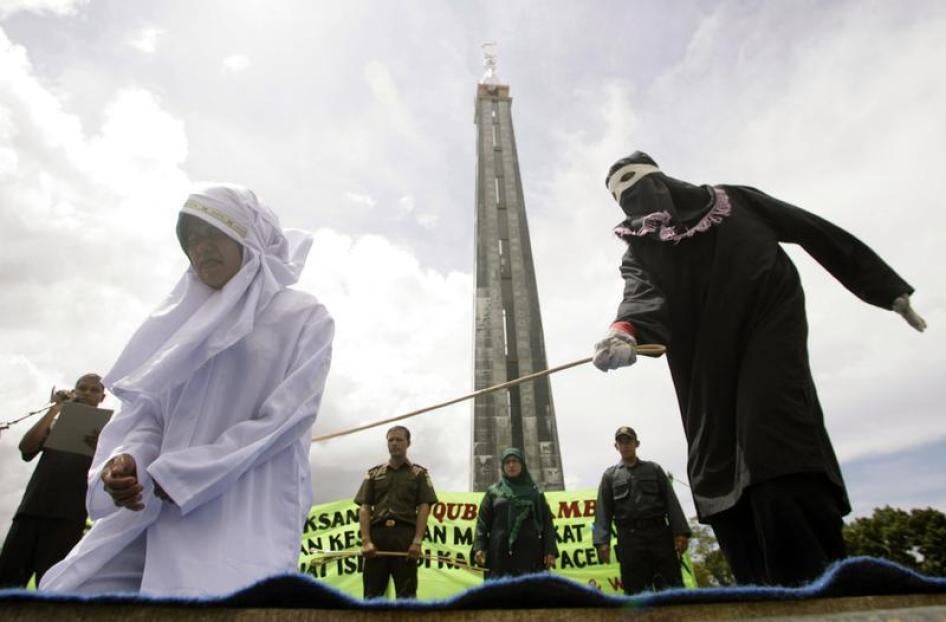Authorities in Indonesia’s Aceh province imposed the Sharia, or Islamic law, punishment of multiple lashes of a cane against 339 people in 2016, the first full-year of implementation of Aceh’s Sharia’s Criminal Code since it went into effect in September 2015.
The Institute for Criminal Justice Reform, an Indonesian nongovernmental organization that compiled the statistics, warned the abusive practice will “continue to rise” in 2017.
Those punished with caning last year included 37 women for violations of Sharia including gambling.
Aceh is the only one of Indonesia’s 34 provinces that can legally adopt bylaws derived from Sharia. Since those bylaws began to go into effect in 2001, Human Rights Watch has documented human rights abuses linked to enforcement of Sharia bylaws prohibiting adultery and imposing public dress requirements on Muslims. The khalwat (“close proximity”) law makes association by unmarried individuals of the opposite sex a criminal offense in some circumstances. While the dress requirement is gender-neutral on its face, in practice it imposes far more onerous restrictions on women with the mandatory hijab, or veil, and long skirts. These “offenses” are not banned elsewhere in Indonesia.
Aceh’s so-called Sharia police have interpreted the broadly worded Sharia-inspired adultery law to prohibit merely sitting and talking in a “quiet” space with a member of the opposite sex to whom one is not married or related – even without any evidence of intimacy. Human Rights Watch has documented such abuses as aggressive interrogation, conditioning the release of suspects upon their agreement to marry, and, in one case, the Sharia police’s rape of a woman during her detention.
Aceh’s Sharia bylaws have proliferated. On September 27, 2014, Aceh’s provincial parliament approved bylaws that extend Sharia to non-Muslims, criminalizing consensual same-sex sexual acts as well as all zina (sexual relations outside of marriage). The criminal code permits up to 100 lashes and up to 100 months in prison for consensual same-sex sexual acts, while zina violations carry a penalty of 100 lashes. Those bylaws were implemented as part of Sharia Criminal Code in September 2015.
Discriminatory enforcement of Sharia has also had a chilling effect on the basic rights to security and freedom of expression for Aceh’s deeply marginalized LGBT community. In April 2016, four United Nations special rapporteurs wrote to the Indonesian government expressing concerns about the abusive enforcement of Sharia against LGBT people, and requesting information on the government’s response.
Under Indonesian law, the national home affairs minister can review and repeal local bylaws, including those adopted in Aceh. In June 2016, Minister of Home Affairs Tjahjo Kumolo backtracked on an announced commitment to abolish abusive Sharia regulations in the country. It’s up to President Joko “Jokowi” Widodo to prod Kumolo to deliver on his promise, or to personally take action against Aceh’s Sharia bylaws and any other local regulations that are discriminatory or otherwise unlawful.








